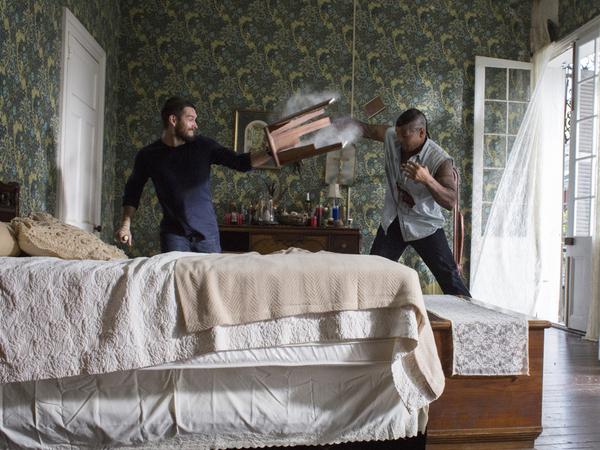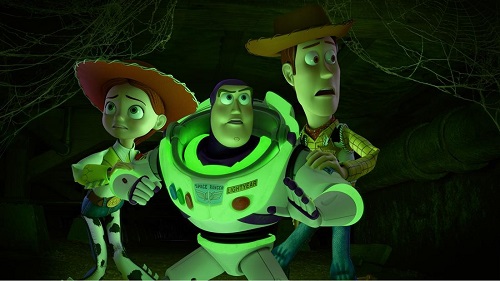Game of Thrones: Episode 6–The Ice Dragon
Developed by Telltale Games
Published by Telltale Games
Available on Mac, PC, PS3, PS4, Xbox 360, Xbox One
The final episode of Telltale’s Game of Thrones series seems to fully put a cap on this story, and it isn’t hard to see why. After a very mixed bag of ups and downs, the story of House Forrester will probably be remembered with feelings of vague positivity but not much else. Even if a few plot threads are indeed left dangling at the end of The Ice Dragon, I don’t imagine anyone will be clamoring for a second series over the hopes for a possible sequel to The Walking Dead or The Wolf Among Us.
It’s actually too bad in some senses, as the final episode managed to deliver at long last on the promises which have been levied since the start of the series. Each decision this time around is given a significant amount of weight, and it’s clear to see that things can change fairly dramatically based on any one of the choices presented to the player. In fact the upping of the ante really began with the finale of Episode 5–A Nest of Vipers, but by then a lot of players had already tuned out, and you can’t blame them really. The lull in action between episodes 2-4 would be notable to anyone paying even the least amount of attention, and Game of Thrones fans are notorious for obsessing over every little detail of the world of Westeros.

With hindsight it seems like the best bet for the series might have been to pare it down to five episodes, rather than six, and excise a lot of the fluff in the process. The next strategy on how to improve the pacing of this tale would have been to take a few these wow-moments, which were several in The Ice Dragon, and find a way to intersperse them throughout the season rather than cramming them all into the finale. That way they would have instilled a sense of interest throughout the episodes, rather than shoving them all together with so little time to breathe in between.
The example of Life is Strange, again, comes to mind. To be fair, it can’t be easy going toe-to-toe with a game which has adopted your format while doing literally everything about three times better than you do, but for any gamer who’s played both it’s impossible not to make the comparison. Life is Strange may have the occasional eye-rolling dialogue flub but it managed to create a more compelling story out of a time traveling art school student than all of the pomp and circumstance of an acclaimed fantasy book series and the most popular show that premium cable giant HBO has ever produced.
So what actually occurs in Episode 6? Well, that is a bit of a loaded question, and will obviously depend heavily on what you decided during Episode 5‘s game-changing ending. Either way though, a few things will remain static throughout: either Asher or Rodrik will be defending Ironrath against the coming onslaught of the advancing Whitehill army, Mira will be attempting to dig herself out of the troubles at King’s Landing, and Garred will finally make it to the North Grove.

Of these three main plotlines, the defense of Ironrath is the most engaging for a number of reasons. Chief among them is that the majority of important characters are gathered here, and this is essentially the center of the struggle. Garred’s sections perform better here than any since his story began, as he has finally made it to the fabled North Grove at last. Though his choices lack the weight of those presented in other portions of the story, the simple fact that it finally feels like something is happening with his character draws the player significantly back into the plot (think the eventual conclusion of Bran’s storyline from the HBO series for a comparison). Surprisingly, it is Mira’s plot line which flounders the most, though it does do one thing right in finally setting aside much of the cameos from the TV series.
In fact, The Ice Dragon seems to have learned a lot from the mistakes of its forebears, and this has likely been the cause of the four month lull (breaks between episodes have normally been in two month intervals) between the penultimate episode in the finale. Much of the exploratory and puzzle sequences have been cut out in favor of focusing on what works best about the series: heavy moral choices and big plot developments. Telltale had clearly expected a more positive response to this series and with the oncoming release of a retail collection for Game of Thrones, they obviously wanted to make sure they sent out positive vibes for their investment.
In the end, players will be left with a lot of the gut-twisting masochistic feelings that have so often characterized the strengths of Game of Thrones literary and serialized efforts, but the the time spent to get there will likely leave some wondering if the journey was worth taking in the first place.





